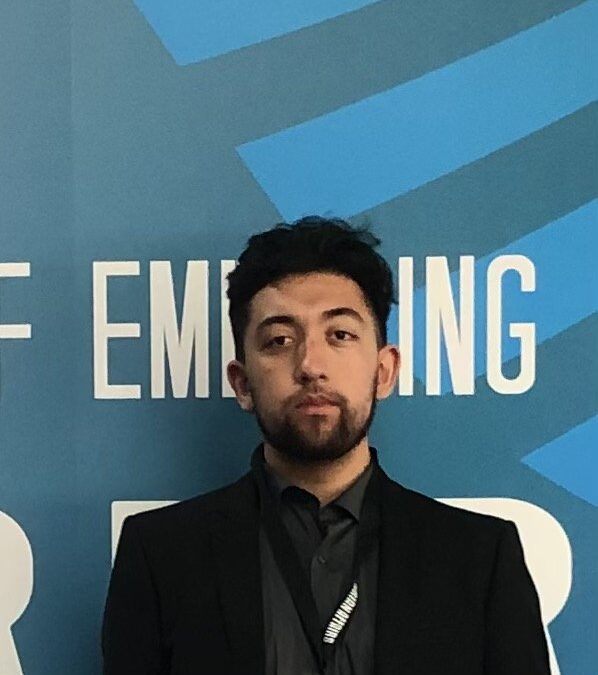Author: Darwin Lopez (https://www.linkedin.com/in/darwinlopez17/)
Darwin Lopez is from Oakland, California and was a mentee in our Summer 2021 Mentorship Program. He transferred from Merritt College to the University of California, Santa Barbara (UCSB), where he is now a senior. He is a Global Studies Major with a minor in Spanish. This piece is from fall 2021.
Can you tell us a bit about your community college journey, any barriers you encountered, and your internships at the U.S. Department of State and the Carnegie Endowment for International Peace?
I am undertaking two internships this fall: the first at the U.S. Department of State, and the second at the Carnegie Endowment. The first one is a nine-month Virtual Student Federal Service Internship (VSFS) internship at the U.S. Department of State’s Bureau of International Narcotics and Law Enforcement Affairs (INL). At INL, I will be researching marginalized communities in Peru and Ecuador with a specific focus on how different justice systems play a role in these regions. My second internship is at the Carnegie Endowment for International Peace in Washington, D.C. As an intern in their American Statecraft program, I am responsible for analyzing U.S. foreign policies and related strategies. I heard about this second internship through the Carnegie Endowment, which sent a link to minority-student-serving universities across the country. They asked for a letter of recommendation and a statement of interest. I am grateful to the GCCT Mentorship Program and my mentor, Glenn, for helping me with the application process. Their guidance and support enabled me to be where I am today.
I am studying U.S.-Latin America relations as I would like to further improve political and socioeconomic ties between the two regions. I am also specifically interested in migration and security in Central America. As of now, my career path is open to various options, from being a U.S. Diplomat to a fellow at a think tank to one day working for a non-profit organization. Currently, I am in the process of applying to graduate school. It took me a while to realize what career path I wanted to pursue. I had to figure it out on my own—as a first-generation college student. I did not know anyone in my field until I arrived at UCSB. When I got to campus, I sought guidance on career opportunities and attended virtual events to gain better insight into what positions I could find in the international affairs field.
During my time in community college, I was working full-time while taking four classes per semester to graduate on time. Most of the time, I had to commute via bus and took pains to arrive at the bus stop an hour and a half before my classes started to be sure I got there on time. My community college did not offer extracurricular activities, so I used my free time to work with NGOs in the summer or take on community service positions with educational equity groups like Oakland Promise. I attended workshops and events led by my scholarship programs to prepare me to be successful at university. It gets difficult knowing how to go about financial aid, internship rejections, and so forth. Being a first-generation and low-income college student adds an extra layer to this. Although financial issues can be challenging, I still try to find my way around things and not let it be a barrier that I cannot overcome. I was grateful for the Equal Opportunity Program (EOP). They offered me a grant that allowed me to travel to Bangkok, Thailand, in February 2020. Through the trip, I was able to gain a more global perspective on international relations as I worked with students from various countries around the world on United Nations peace strategies.
I encountered significant barriers in appealing for my financial aid during my first year at university. I had to pay out of pocket and was not receiving much aid, which proved difficult financially when it came to paying for my rent and food. I had to work two jobs during the summer prior to entering UCSB as a junior. As the first person to attend higher education in a family where some of us are undocumented, I did not know who to refer to or where to seek help. I had to learn my way around the higher education system alone. My advice to other first-generation college students going through the same is to speak with your counselors. Create a relationship with them as they are there to help guide you. If you are struggling in a class, then I suggest attending office hours. This will help you review and gain a better understanding of the material. This is especially important since maintaining good grades is critical when transferring schools.
If you ever have any questions on getting into the international affairs community or about transferring and feel free to reach out to me for any questions! Also connect with me on LinkedIn!

